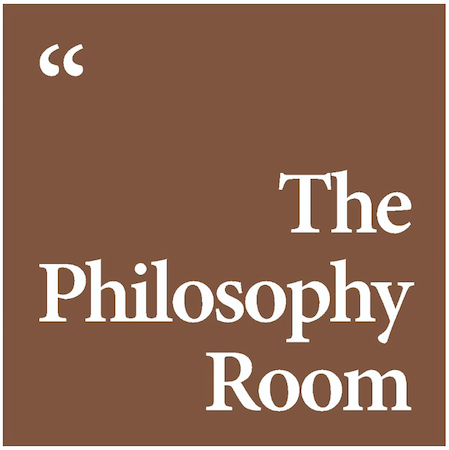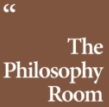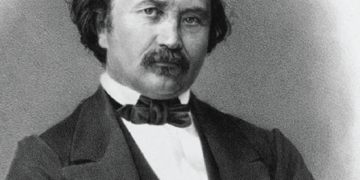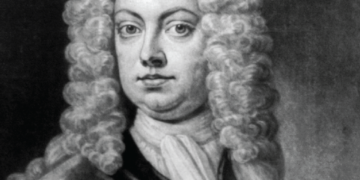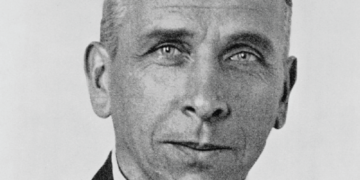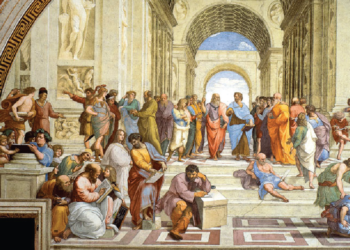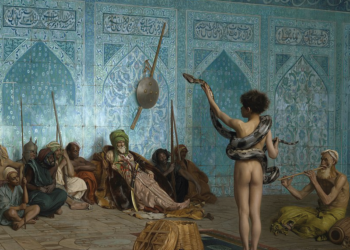Dignaga
1) Biography
Dignaga was a significant Buddhist philosopher who lived in India during the 5th and 6th centuries CE. He was born in southern India, and his family was of Brahmin origin. Dignaga’s early life is shrouded in mystery, and very little is known about his background, education, and upbringing.
It is believed that Dignaga was initially a follower of the Vaibhashika school of Buddhism, which emphasized the importance of empirical observation and analysis. Later, he became associated with the Yogachara school, which emphasized the role of consciousness in perception and experience. Dignaga was a prolific writer, and he wrote extensively on Buddhist philosophy, logic, and epistemology. He is considered to be one of the most influential thinkers in the history of Buddhist philosophy.
Dignaga’s most significant contribution to Buddhist philosophy was his development of the theory of “pramana,” which refers to the means by which knowledge is acquired. His theory of pramana was a significant departure from earlier Buddhist thought, which emphasized the importance of intuition and contemplation. Dignaga’s emphasis on empirical observation and logical analysis had a profound impact on the development of Buddhist philosophy.
His other significant contributions to Buddhist philosophy include his work on the nature of causality, his critique of the Nyaya school of Hindu philosophy, and his theory of linguistic meaning.
Despite his significant contributions to Buddhist philosophy, very little is known about Dignaga’s personal life. It is not clear when or where he died, and there is little information available about his family or personal relationships. Nonetheless, his ideas continue to shape Buddhist philosophy to this day, and his work remains a subject of study and debate among scholars of Buddhist thought.
2) Main Works
Pramana-samuccaya (Compendium of Valid Cognition):
This is Dignaga’s most famous work and is considered to be one of the most important works in the history of Buddhist philosophy. The Pramana-samuccaya is a systematic exploration of the theory of pramana or the means by which knowledge is acquired. In this work, Dignaga argues that there are only two valid means of acquiring knowledge: direct perception and inference. He also provides a detailed analysis of each of these means and their respective limitations.
Hetucakra (Wheel of Reasoning):
This work is a comprehensive analysis of Buddhist logic and is considered to be one of the most important works on logic in the Indian philosophical tradition. The Hetucakra provides a detailed analysis of the nature of causality and the principles of reasoning.
Alambanapariksa (Examination of the Object):
This work is a detailed analysis of the nature of linguistic meaning and the relationship between language and thought. In this work, Dignaga argues that the meaning of a word is determined by its relationship to the object it refers to and that language is a means of expressing thoughts.
Anumana-samuccaya (Compendium of Inference):
This work is a detailed exploration of the process of inference and the principles of reasoning. In this work, Dignaga provides a systematic analysis of the different types of inference and their respective strengths and limitations.
Sthiramati-bhasya (Commentary on Sthiramati):
This work is a commentary on the works of the Buddhist philosopher Sthiramati. In this work, Dignaga provides a detailed analysis of Sthiramati’s ideas on Buddhist epistemology and logic.
Yukti-dipika (Lamp of Reasoning):
This work is a commentary on the works of the Buddhist philosopher V asubandhu. In this work, Dignaga provides a detailed analysis of V asubandhu’s ideas on Buddhist epistemology and logic.
3) Main Themes
Theory of Pramana:
One of Dignaga’s most significant contributions to Buddhist philosophy was his development of the theory of pramana, which refers to the means by which knowledge is acquired. According to Dignaga, there are only two valid means of acquiring knowledge: direct perception and inference. Direct perception is knowledge gained through sensory experience, while inference is knowledge gained through logical deduction.
Buddhist Epistemology:
Dignaga’s work on pramana led to a significant development in Buddhist epistemology, which is the study of knowledge and belief. In particular, Dignaga emphasized the importance of empirical observation and logical analysis in the acquisition of knowledge.
Buddhist Logic:
Dignaga’s work on logic is considered to be one of his most significant contributions to Buddhist philosophy. He developed a system of logic that emphasized the importance of rigorous analysis and reasoning. Dignaga’s system of logic had a profound impact on the development of Buddhist philosophy and influenced the work of later thinkers such as Dharmakirti.
Causality:
Dignaga’s work on causality was another significant contribution to Buddhist philosophy. He argued that causality is a fundamental concept that underlies all of our experiences and that our understanding of causality is critical to our understanding of the world.
Linguistic Meaning:
Dignaga’s work on linguistic meaning was another significant contribution to Buddhist philosophy. He argued that the meaning of a word is determined by its relationship to the object it refers to and that language is a means of expressing thoughts.
Yogacara Philosophy:
Dignaga was associated with the Y ogacara school of Buddhist philosophy, which emphasizes the role of consciousness in perception and experience. Dignaga’s work on Buddhist epistemology and logic was a significant contribution to the development of Y ogacara philosophy.
4) Buddhist epistemology after Dignaga
Dignaga’s work on Buddhist epistemology was a significant contribution to the field of Buddhist philosophy. He emphasized the importance of empirical observation and logical analysis in the acquisition of knowledge, and developed the theory of pramana to describe the means by which knowledge is acquired. Dignaga’s ideas had a profound impact on Buddhist philosophy and continue to influence Buddhist epistemology to this day.
After Dignaga, Buddhist philosophy continued to develop and evolve. Scholars built upon his work and refined his ideas, leading to the emergence of several distinct schools of Buddhist epistemology.
One of the most significant developments in Buddhist epistemology after Dignaga was the emergence of the Yogacara school. Y ogacara philosophy emphasizes the role of consciousness in perception and experience and developed a sophisticated system of epistemology to explain the nature of knowledge. Y ogacara philosophers built upon Dignaga’s ideas and developed a more nuanced understanding of the relationship between perception, consciousness, and knowledge.
Another important development in Buddhist epistemology after Dignaga was the emergence of the Madhyamaka school. Madhyamaka philosophy emphasizes the idea of emptiness, or the absence of inherent existence in all phenomena. Madhyamaka philosophers developed a sophisticated system of reasoning to support this idea and applied their ideas to the problem of epistemology. They argued that all knowledge is ultimately dependent on conventional designations and that ultimate reality is beyond the scope of language and thought.
In addition to the emergence of new schools of thought, Buddhist epistemology also continued to evolve through the work of individual scholars. For example, the philosopher Dharmakirti built upon Dignaga’s work on logic and developed a sophisticated system of reasoning and argumentation. He also developed the concept of apoha, or the idea that words refer to things by excluding other things. This idea had a significant impact on the development of Buddhist philosophy and influenced the work of later thinkers.
5) Dignaga’s contribution to Logic
Dignaga is widely recognized as one of the most important contributors to the field of Buddhist logic. He is credited with developing a number of key concepts and techniques that have had a profound impact on the field of logic, both within the Buddhist tradition and beyond.
One of Dignaga’s most important contributions to logic was his development of the concept of inference. Inference refers to the process of deriving a conclusion from one or more premises. Dignaga developed a sophisticated system of inference based on the idea of a syllogism, in which a conclusion is drawn from two premises. He also developed the concept of a hetu, or reason, which refers to the characteristic that links the premises and the conclusion.
Dignaga’s work on inference was closely linked to his ideas about perception and cognition. He argued that all knowledge is ultimately based on perception, and that inference is a means of extending our knowledge beyond what can be directly perceived. He also developed the concept of apoha, which refers to the process of defining things by excluding other things. This concept played an important role in his work on inference, as it allowed him to define the terms used in the syllogism in a precise and rigorous way.
Another important contribution of Dignaga to logic was his work on the problem of universals. The problem of universals refers to the question of whether or not general concepts, such as “redness” or “humanness,” correspond to real entities in the world. Dignaga argued that such concepts are ultimately dependent on the particular instances of things that we observe, and that they do not correspond to any real entities in the world.
Dignaga’s work on logic had a profound impact on the development of the field, both within the Buddhist tradition and beyond. His system of inference and his ideas about perception and cognition have been widely studied and applied in a variety of contexts. His work on the problem of universals also had a lasting impact on Western philosophy, particularly during the medieval period.
6) Legacy
Dignaga’s legacy is multifaceted and far-reaching. He is widely recognized as one of the most important figures in the development of Buddhist philosophy and logic, and his work has had a lasting impact on a variety of fields.
Within the Buddhist tradition, Dignaga’s work on logic and epistemology has been widely studied and applied. His system of inference and his ideas about perception and cognition haveplayed a key role in the development of Buddhist philosophy, and his work continues to be studied and debated by scholars to this day. Dignaga’s legacy has also had an impact beyond the Buddhist tradition. His ideas about inference and his work on the problem of universals have had a lasting impact on Western philosophy, particularly during the medieval period.
His influence can be seen in the work of figures such as William of Ockham and John Duns Scotus, both of whom were deeply influenced by Dignaga’s ideas.
7) Some Quotes.
“Perception is the foundation of all knowledge.”– Dignaga
“Inference is a means of extending knowledge beyond what can be directly perceived.”– Dignaga
“A syllogism consists of a proposition that is proved by means of two others.”– Dignaga
“A thing is defined by what it is and what it is not.”– Dignaga
“The object of logic is to establish the validity of knowledge.”– Dignaga
